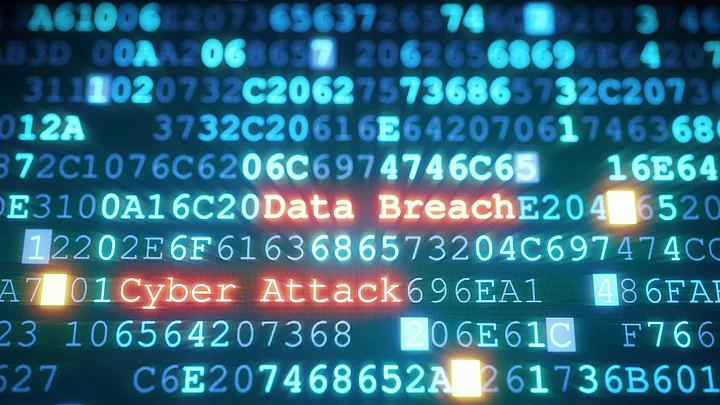Supreme Court’s judgement in March this year declaring Section 66A of the Information Technology Act as unconstitutional hasn’t gone down well with investigating agencies. Probe agencies can no longer spoof, which means they cannot interfere with the privacy of people who they feel could be exchanging suspicious content.
Section 66A “invades right to free speech, every expression used in it is nebulous”, the top court had ruled. A parliamentary committee however, wants the IT and law ministries to work in “tandem” to decide the “course of action to face cybercrimes and formulate amendments” to IT Act and Indian Penal Code to “cover the multi- facets of cybercrime with rapid development of technology and sophisticated modus operandi the criminals adopt”.
The recommendations by P Bhattacharya, chairman of All-Party Department-related Standing Committee on Home Affairs, were tabled in Parliament last week. It made certain suggestions while examining the action taken report filed by the home ministry on the concerns expressed by another parliamentary panel, headed by M Venkaiah Naidu in the 176th report during the UPA’s regime.
Among others who comprised the Bhattacharya Committee were Leader of the Opposition Mallikarjun Kharge, D Raja, Sitaram Yechury, Kirron Kher, Vijay Goel , Derek O’Brien, Baishnab Parida, Prem Singh Chandumajra, Adhir Ranjan Chowdhury, Selvakumara Chinayan S, Dr. Kakoli Ghosh Dastidar, Ramen Deka and Chandrakant Khaire.
Delhi Police Expresses Concern
The Committee’s recommendation to evolve a law that could deal with the fallout of scrapping Section 66A has been made in response to the concerns expressed by the Delhi Police. Since there’s no law now that allows spoofing, it’s extremely difficult to protect the capital’s mammoth metro rail service which is used by over 26 lakh passengers every day.
In view of the prevailing security scenario in the country, Delhi Metro appears to be “vulnerable to manmade disasters or terrorist attacks”, the Committee says.
Crowd density at a metro station is high, hence it is a potential target by terrorists. Though police can take certain pre-emptive steps it is felt that “there is an urgent need to strengthen the security of metro stations in order to neutralise the possibility of any terrorist strike, and the visibility of Delhi Police in the metro stations must be substantially increased”, the Committee asserts.
Need for a New IT Law
- After Sec 66A was struck down by top court, probe agencies are not allowed to track online messages that may be suspicious
- Parliamentary panel raises concerns expressed by Delhi Police who have the responsibility of tracking potential terrorist activity
- Panel also recommends the need to update the IT Law
- If the House Panel recommendations are accepted, viral content would be monitored and penal action be taken for any offence
Need to Update IT Law
Given the rapid development of technology and the sophisticated modus operandi criminals adopt, the Union government ought to keep the IT Law updated particularly when Section 66 was scrapped for being draconian.
The Committee also underlines that there is “no section of law to cover spoofing which should be an offence under the law”. The law must equipped to take into account perceived exigencies. It should envisage that “whoever, wilfully, knowingly or purposely transmits electronic mail messages with the intent to deceive or mislead the recipient or any Internet Access Service of the origin of such messages… intentionally initiates the transmission of multiple electronic messages from such address shall be punishable with” fine and sentence to be decided under the law.
“Whoever, by means of a computer resource or a communication device sends or transmits any information which promotes or attempts to promote, on the ground of religion, race, sex, place of birth, residence, language, caste or community or any other ground whatsoever, disharmony or feelings of enmity, hatred or ill-will between religious, racial, linguistic or regional groups or caste, or communities” shall be punished in accordance with the proposed law.
Keeping Track of Viral Content
Another significant recommendation relates to covering “imputations that any class of persons cannot, by reason of their being members of any religious, racial, linguistic or regional group or caste or community bear true faith and allegiance to Constitution of India, or which propagates that any class of persons by reason of their being members of any religious, racial, language or religion group or caste or community or gender be denied or deprived of their rights as citizens of India” .
This law ought to include innocently forwarded messages and any such person sending or transmitting it should also be liable, the Committee says.
“This would act as a deterrent in the viral spread of such content”, the Committee feels. Because of “fast and wider” spread of online material, the impact could be “severe and damaging” if dangerous messages are exchanged between suspicious persons of groups. Thus, stricter penalties may be prescribed for violating the law and it should also cover persons who “just forward” objectionable content online.
Dealing With Cyber Crime Against Women
Sec 66E of IT Act that deals with violation of privacy should be amended to include “capturing, publishing or transmission of video (apart from image, which is already included) of private areas of any woman” (instead of ‘person’) without consent.
There have been instances where a woman’s phone number, email ID or other personal information has been posted on a porn or courier site, as a service provider. Such acts should be brought under the purview of law, the Committee recommends.
It expresses “displeasure” that out of 68 cybercrime cases registered since 2010 by the Delhi Police, only three are in the trial stage and the remaining 65 are still being probed.
“This is a very sorry state of affair and warrants no excuses”, the panel slams Delhi Police and recommends that all cases be brought to their conclusion stage at the earliest.
(The writer is a Delhi-based senior journalist.)
(At The Quint, we question everything. Play an active role in shaping our journalism by becoming a member today.)
